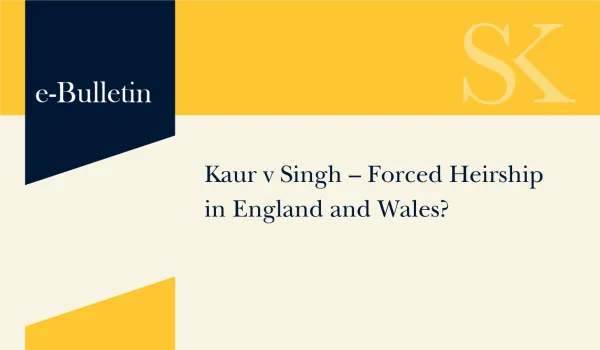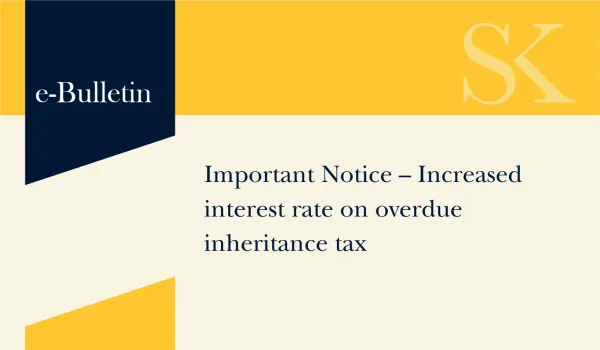The law and practice referred to in this article or webinar has been paraphrased or summarised. It might not be up-to-date with changes in the law and we do not guarantee the accuracy of any information provided at the time of reading. It should not be construed or relied upon as legal advice in relation to a specific set of circumstances.
In the first series of these articles we discussed wills and estate planning in accordance with Shari’ah law principles. If you have asked us to prepare wills on your behalf, the devolution of your estate in accordance with Shari’ah principles should be straightforward, and if you have asked us to plan for the devolution of non-UK assets, we will have advised on appropriate structures to ensure they pass under Shari’ah law principles in so far as that is possible.
Assistance with probates in Shari’ah law Jurisdictions
Whether or not the deceased left a Will, we are able to assist clients with the administration of their estate when a friend or family member passes away with overseas assets, and can do so to quickly and efficiently in almost every jurisdiction of the world, this includes those jurisdictions governed by Shari’ah law.
In carrying out the estate administration we can act for the executors in the Will, or act as executor under the Will where Stone King LLP’s Trust Corporation has been so appointed.
We can help project managing the UK and overseas successions so that our clients only need a single point of contact for all jurisdictions.
What are the first steps in a cross-border probate involving a Shari’ah jurisdiction?
One of the first steps in a cross-border administration includes applying for grants of probate in the UK and any overseas jurisdictions. The UK grant of probate will cover the UK assets. Similarly, in Shari’ah law jurisdictions, we can assist with the making of probate applications at the relevant Shari’ah court, known as ‘Al Mahkamah Al Shari’yah’ in many jurisdictions including the UAE, Saudi Arabia and Jordan.
To successfully bring a claim in a Shari’ah jurisdiction, we work with our preferred foreign legal firms to analyse what work needs to be completed in each jurisdiction, and we co-ordinate and assist with the signing of foreign succession documentation, to facilitate obtaining the foreign equivalent of a grant of probate.
What is the correct order for the distribution of the Estate?
In assisting you with the probate, we understand the importance of the order in which the distribution of the estate is carried out in accordance with the Shari’ah law principles. We assist with arranging, and paying the expenses of the funeral, payment of all outstanding debts, and distributing the estate to the beneficiaries. We will ensure that UK and overseas assets are distributed to the correct beneficiaries under UK law as well as the laws of the relevant Shari’ah law jurisdiction.
How can Stone King assist with UK Inheritance tax?
In order to provide robust advice and diligently carry out the administration of the estate, we will analyse the deceased’s circumstances in respect of all elements that may affect the administration, including matters of succession and tax. In doing so, we will analyse and assess which laws apply to which assets. For inheritance tax purposes, we provide HMRC with a robust analysis of the deceased’s common-law domicile, and will calculate UK tax and submit UK tax returns where appropriate.
How can we mitigate your tax liability after death?
We may be able to help you mitigate the inheritance tax liability of a deceased’s estate after death by advising on and preparing deeds of variation, for the purposes of post death tax planning from a UK, international and Shari’ah law perspective. An example of a circumstance in which a deed of variation can be used, if not enough assets have been left to charity to reduce the tax rate of assets passing to non-exempt beneficiaries
If you need help with your Shari’ah compliant Wills and estate planning or with a probate and administration of an estate, please do contact us at the Stone King International and Cross-Border team, where we will be delighted to help.
If you have any queries in relation to the above or would like further information, please contact Mazen Abou-Farha at international@stoneking.co.uk or +44(0) 1225 337599.







